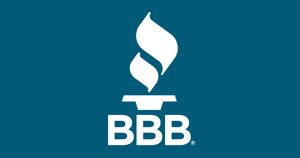Straight Talk: Small businesses beware, tax credits might not be real

Better Business Bureau serving Canton Region and Greater West Virginia offers tips and advice for consumers to avoid fraudulent practices.
Business owners, con artists want to trick you into claiming tax credits that you are not eligible for. The Internal Revenue Service warns about scams revolving around the Employee Retention Credit, a tax credit for businesses that continued paying employees during the COVID-19 shutdowns or had a significant income decline during the eligibility period.
While most eligible employers have already claimed this credit, unscrupulous companies are advertising ERC services to draw in businesses that are not eligible for the credit.
What is in it for them? As always, scammers hope to get their hands on your personally identifiable information for identity theft. In some cases, they may charge you for dishonest services. Your best line of defense is to get to know the scam so that you can spot it first.
How the scam works
You see an ad online or hear one on the radio that claims the government still owes your business an Employee Retention Credit, which you can claim on your taxes this year. They may ask you to call a number or visit a website for more information. A quick chat with the customer service rep or looking at a website convinces you that qualifying for the ERC is extremely easy, so you decide to give it a try!
You contact the company, and they tell you that you qualify for the credit – without knowing anything about your business or how you handled COVID-19 shutdowns. They ask you to provide sensitive information, including your Social Security number, employer identification number (EIN), and other details the scammer can use to commit identity theft. If you hesitate to provide your personal information, they will quickly assure you they only want to help you get the money your business is entitled to.
The company charges a service fee in other scam versions to help you get the credit. Unfortunately, if you accept their services and claim a credit you are not eligible for – even if you do so in good faith – you could face serious consequences, including paying back the credit with penalties and interest. Ultimately, the IRS will hold you responsible for any inaccurate information on your tax return – not the scammer.
How to avoid this scam
Think twice about promises of huge refunds. Scammers use the same tactics for many different cons. Tax credit schemes are no exception. Scammers count on an emotional response to a promise of fast, free cash before reason sets in. If it sounds too good to be true, it probably is.
Do not pay to get money. While paying a tax professional to prepare your taxes each year is perfectly reasonable, watch out for companies or individuals that charge you fees based on high and optimistic percentages of recovered taxes. Keep in mind that true tax professionals always make conservative estimates.
Be careful with your personally identifiable information. Never give sensitive information to someone you do not know and trust. If you are dealing with a tax professional for the first time, investigate beforehand to find out if they have a solid business reputation before you hand over any personal details.
Always look for businesses that follow BBB Accreditation Standards and BBB Standards for Trust. Trustworthy BBB Accredited Businesses do not participate in shady practices. Want to join the ranks and become BBB Accredited? Visit BBB.org/get-accredited.
FOR MORE INFORMATION – If you have been the victim of a scam, report it at BBB.org/ScamTracker. Your report can help others avoid falling victim to scams.
FOR BBB INFORMATION – Visit BBB.org/canton or call 330-454-9401 to look up a business, file a complaint, write a customer review, read tips, find our events, follow us on social media, and more!
This article originally appeared on The Repository: Straight Talk: Small businesses beware, tax credits might not be real
